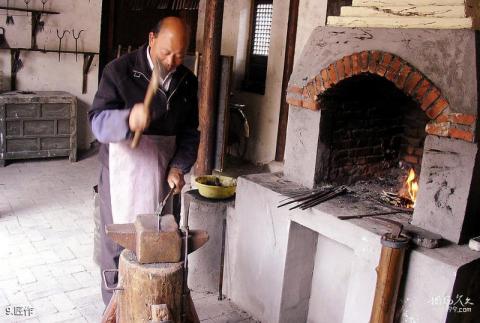
Introduction to craftsmanship: Pinghu has always been prosperous in all industries. Individual handicrafts are spread across urban and rural areas, with a complete range of industries, mainly iron, wood, bamboo and other workshops that serve agricultural production and people's lives.
Blacksmiths are mostly individual ironwork workshops with front shops and back factories. According to records, there were 59 blacksmith households when the county was founded in the fifth year of Xuande in the Ming Dynasty. In the 26th year of the Republic of China, there were more than 30 iron shops in the county. It mainly makes sickles, hoes, iron hammers, kitchen knives, fire tongs, scissors, etc.;
Carpenters, Pinghu’s woodware industry has the largest number of employees among the craftsmanship team, and most of them are passed down from father to son, master to apprentice. . Since woodware production has a set of strict dimensional specifications and technical requirements, it is also divided into: square work, round work, large wood, small wood, turned wood, carving, shipbuilding, oar making, etc. Traditionally, carpenters are invited by their employers to work. For projects with certain specifications, there are many craftsmen. Among them, the foreman is called the "head master"; the bamboo craftsman (commonly known as the bamboo master). Pinghu's bamboo weaving industry began in the Ming Dynasty , flourished in the Qing Dynasty. By the end of the Qing Dynasty, there were more than 400 households of bamboo craftsmen, as well as bamboo and rattan craftsmen and a large number of farmers who also made bamboo utensils.
Bamboo craftsmanship is a handicraft industry second only to carpentry. The bamboo wares produced include production tools and daily utensils, mainly including baskets, baskets, baskets, mats, etc. Historically, most of the bamboo craftsmen in Pinghu were located in the northern rice area, and some were quite concentrated. For example, Lianfeng Village, Zhongdai Town, 6 kilometers north of Pinghu City, was known as "Bamboo Nest" in the old days. Every family here can split bamboo and everyone can weave baskets.
